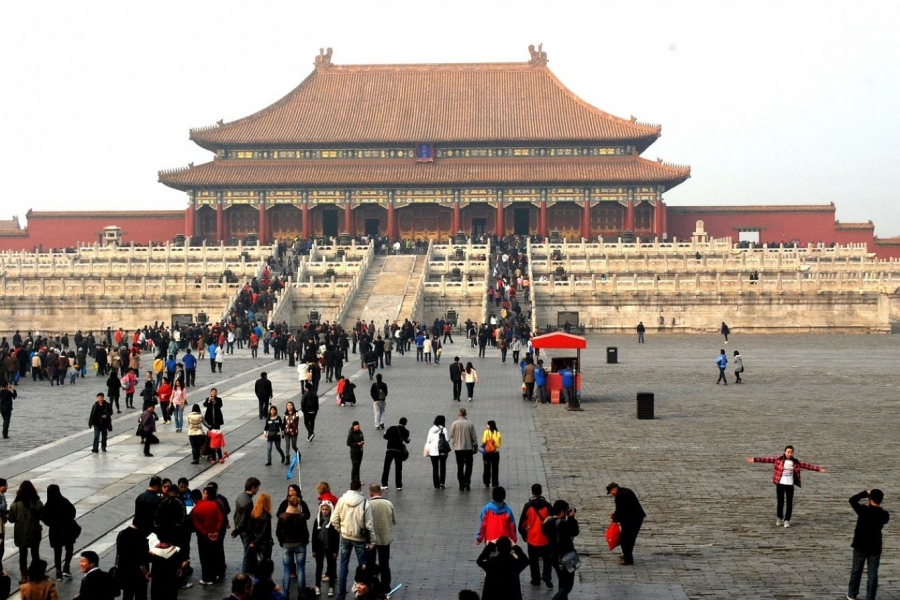In recent years, especially since the beginning of the coronavirus pandemic, China has been making great efforts to influence global public opinion. Chinese media is already becoming one of the dominant sources of information in particular developing countries, especially in Africa. Chinese leaders believe their government can gain geopolitical power and impose its values and social norms worldwide, reshaping global narratives. This is called acquiring "discourse power.”

In recent years, especially since the beginning of the coronavirus pandemic, China has been making great efforts to influence global public opinion. Chinese media is already becoming one of the dominant sources of information in particular developing countries, especially in Africa. Chinese leaders believe their government can gain geopolitical power and impose its values and social norms worldwide, reshaping global narratives. This is called acquiring "discourse power.”

To acquire the "power of discourse,” China relies on several pillars, among which are the integration of the Chinese Communist Partys internal and external propaganda, online and offline channels for its dissemination, as well as surveillance mechanisms.
Namely, China tends to expose the world public to Chinese narratives as much as possible through traditional and new media, hoping to undermine the global dominance of Western discourse.
China has spent more than $1.5 billion annually since 2008 on spreading propaganda using traditional media, with a large portion of the funds going to initiatives in the Global South.
This strategy is particularly evident in the case of the state news agency Xinhua, which describes itself as the "light cavalry" in Chinas global public opinion war.
China is effectively spreading its propaganda internationally, using foreign social media platforms.
As part of these efforts, Xinhua has expanded its network significantly over the years, so it now has more foreign correspondents than any news agency worldwide.
China uses another strategy to spread its propaganda - encouraging foreign journalists to report more favorably on issues concerning China.
Also, representatives of the Chinese state have greatly expanded their presence on social networks.
As of January 2021, Xinhua has distributed an average of seven thousand three hundred articles, photos, videos, and other media content in 15 world languages per day, amassing more than 200 million social media followers overseas on various platforms, including Facebook, Twitter, and YouTube.
The number of Twitter accounts in China skyrocketed by more than 6,000 percent in just three months in 2017, following Western media reports on the situation in Chinas Xinjiang province.
1.jpg)
Source: X (former Twitter)
Regarding Chinas efforts to shape public opinion, most studies have found that Chinese messages generally do not resonate with local audiences.
However, some studies have shown that Chinese propaganda can effectively convince audiences that the "Chinese model" is superior in ensuring growth and stability to models of democratic political systems.
Chinese officials have often engaged in coordinated social media influence and information campaigns, including those that spread misinformation about the origins of the COVID-19 pandemic.
Another pillar of Chinas strategy is content innovation, which involves tailoring content and narratives to best suit a particular audience, a technique known as "precision communication."
China believes that access to public opinion data in overseas countries is essential to improve its ability to tailor content.
Representatives of the Communist Party said that the Internet contains a vast amount of data that can accurately reflect social sentiments and that, with the use of analytics and artificial intelligence, the Internet can be a tool to strengthen the partys leadership.
To that end, China recently launched four state-run labs dedicated to using data to tailor content to specific audiences better and spreading "positive energy" through digital and social media.
In addition to shaping the content, one of the tactics is obfuscating the fact that the content originates from Chinese state sources.
This phenomenon is known as "politically innate advertising,” in which Chinese state media organizations buy space in foreign news outlets to publish state-sanctioned content "camouflaged" as a neutral news article.

Source: Pixabey Free Stock
In a 2020 report, Freedom House pointed out that, especially in digital versions of local newspapers, an English-language column produced by Chinas state-run China Daily, the "China Observer," often goes unlabeled, so readers dont know China sponsors it.
Also, China tries to control local media environments through content-sharing agreements, which sometimes end up with local media being flooded with free or cheap content supported by the Chinese Communist Party.
A large part of this pressure refers to the countries within the Chinese "Belt and Road" initiative, to which Serbia also belongs, and most of which are in the Global South.
The final pillar of Chinas digital discourse power strategy is governance.
China, for example, is active in shaping information and communication technology standards in the International Telecommunication Union so that all China-affiliated members, whether from academia, the private sector, or the government, vote as a bloc.
This ensures the adoption of Chinese proposals and helps spread Chinese norms regarding cyber sovereignty, or Chinas version of Internet governance, which upholds the sovereign right of the government to control the Internet within its borders.
In this way, the Chinese state, or the Communist Party, spreads its narrative, advising governments worldwide on how to shape laws and policies in their societies to manage technology often provided by China.
In this way, China provides other countries, especially developing countries, with technical infrastructure while offering the standards through which it functions.
At the same time, China is using its connections in the local media to tell a positive story about the benefits of Chinese investment in the future of developing countries.
China is also using access to vast amounts of data, especially regarding international public opinion on China-related topics, to make Chinese media more influential globally.
The Chinese state uses this data to refine its messages further and improve its propaganda apparatus and censorship.
Chinas efforts have a more significant impact in countries where civil liberties are already restricted and where it is most important to win the support of a small circle of political elites.
In all societies there are issues that are rather being skipped. Certain...
The neoliberal path, started in 2001, has led to especially bad results in Serbi...
For centuries, the region was subsumed within the Ottoman and Hungarian Empires,...
"Serbia has returned to the systemic and anti-systemic position of the political...
In reality, Serbia is closer than ever to NATO. In the course of the last five y...